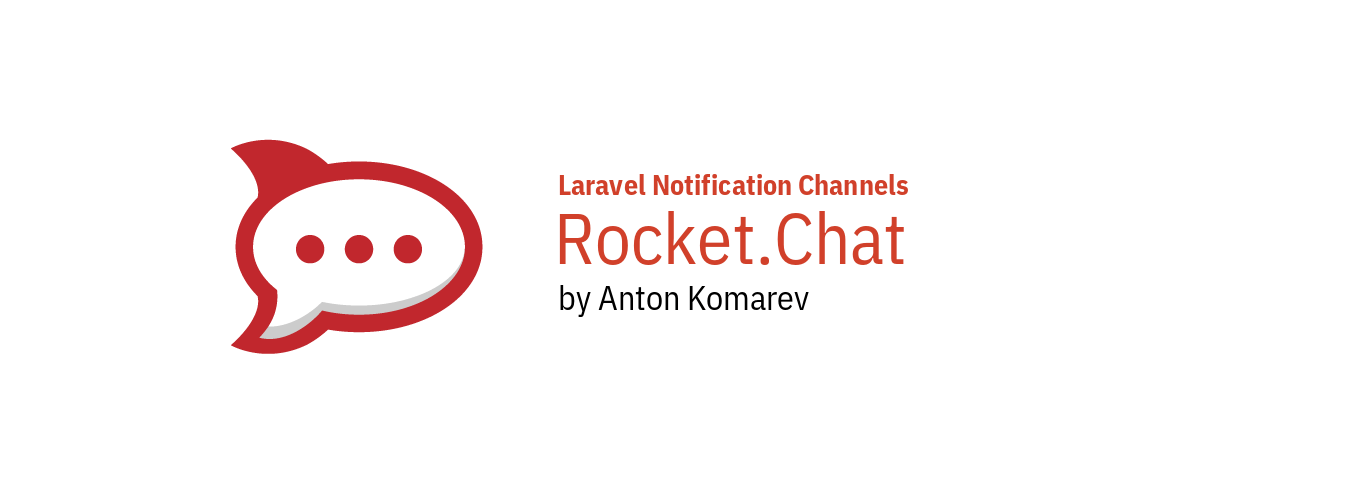yottybyte / rocket-chat-laravel-10-integrations
Rocket.Chat Notifications channel for Laravel 5.6+
This package's canonical repository appears to be gone and the package has been frozen as a result. Email us for help if needed.
Installs: 144
Dependents: 0
Suggesters: 0
Security: 0
Stars: 0
Watchers: 1
Forks: 0
Open Issues: 0
pkg:composer/yottybyte/rocket-chat-laravel-10-integrations
Requires
- php: ^7.2.0|^8.0
- guzzlehttp/guzzle: ^6.3|^7.0
- illuminate/notifications: ^5.6|^6.0|^7.0|^8.0|^9.0|^10.0
- illuminate/queue: ^5.6|^6.0|^7.0|^8.0|^9.0|^10.0
- illuminate/support: ^5.6|^6.0|^7.0|^8.0|^9.0|^10.0
Requires (Dev)
- mockery/mockery: ^1.3.3
- phpunit/phpunit: ^8.0|^9.0|^10.0
This package is auto-updated.
Last update: 2025-07-21 20:10:23 UTC
README
Rocket.Chat Laravel Notifications Channel
Introduction
This package makes it easy to send notifications using RocketChat with Laravel 5.6+.
Contents
Installation
You can install the package via composer:
$ composer require yottybyte/rocket-chat-laravel-10-integrations
Setting up the RocketChat service
In order to send message to RocketChat channels, you need to obtain Webhook.
Add your RocketChat API server's base url, incoming Webhook Token and optionally the default channel to your config/services.php:
// config/services.php ... 'rocketchat' => [ // Base URL for RocketChat API server (https://your.rocketchat.server.com) 'url' => env('ROCKETCHAT_URL'), 'token' => env('ROCKETCHAT_TOKEN'), // Default channel (optional) 'channel' => env('ROCKETCHAT_CHANNEL'), ], ...
Usage
You can use the channel in your via() method inside the notification:
use Illuminate\Notifications\Notification; use NotificationChannels\RocketChat\RocketChatMessage; use NotificationChannels\RocketChat\RocketChatWebhookChannel; class TaskCompleted extends Notification { public function via($notifiable): array { return [ RocketChatWebhookChannel::class, ]; } public function toRocketChat($notifiable): RocketChatMessage { return RocketChatMessage::create('Test message') ->to('channel_name') // optional if set in config ->from('webhook_token'); // optional if set in config } }
In order to let your notification know which RocketChat channel you are targeting, add the routeNotificationForRocketChat method to your Notifiable model:
public function routeNotificationForRocketChat(): string { return 'channel_name'; }
Available methods
from(): Sets the sender's access token.
to(): Specifies the channel id to send the notification to (overridden by routeNotificationForRocketChat if empty).
content(): Sets a content of the notification message. Supports Github flavoured markdown.
alias(): This will cause the message’s name to appear as the given alias, but your username will still display.
emoji(): This will make the avatar on this message be an emoji. (e.g. ':see_no_evil:')
avatar(): This will make the avatar use the provided image url.
attachment(): This will add an single attachment.
attachments(): This will add multiple attachments.
clearAttachments(): This will remove all attachments.
Adding Attachment
There are several ways to add one ore more attachments to a message
public function toRocketChat($notifiable) { return RocketChatMessage::create('Test message') ->to('channel_name') // optional if set in config ->from('webhook_token') // optional if set in config ->attachments([ RocketChatAttachment::create()->imageUrl('test'), RocketChatAttachment::create(['image_url' => 'test']), new RocketChatAttachment(['image_url' => 'test']), [ 'image_url' => 'test' ] ]); }
Available methods
color(): The color you want the order on the left side to be, any value background-css supports.
text(): The text to display for this attachment, it is different than the message’s text.
timestamp(): Displays the time next to the text portion. ISO8601 Zulu Date or instance of any \DateTime
thumbnailUrl(): An image that displays to the left of the text, looks better when this is relatively small.
messageLink(): Only applicable if the ts is provided, as it makes the time clickable to this link.
collapsed(): Causes the image, audio, and video sections to be hiding when collapsed is true.
author($name, $link, $icon): shortcut for author methods
authorName(): Name of the author.
authorLink(): Providing this makes the author name clickable and points to this link.
authorIcon(): Displays a tiny icon to the left of the Author’s name.
title(): Title to display for this attachment, displays under the author.
titleLink(): Providing this makes the title clickable, pointing to this link.
titleLinkDownload(): When this is true, a download icon appears and clicking this saves the link to file.
imageUrl(): The image to display, will be “big” and easy to see.
audioUrl(): Audio file to play, only supports what html audio does.
videoUrl(): Video file to play, only supports what html video does.
fields(): An array of Attachment Field Objects.
[
[
'short' => false, // Whether this field should be a short field. Default: false
'title' => 'Title 1', //The title of this field. Required
'value' => 'Value 1' // The value of this field, displayed underneath the title value. Required
],
[
'short' => true,
'title' => 'Title 2',
'value' => 'Value 2'
],
];
Changelog
Please see CHANGELOG for more information what has changed recently.
Testing
$ vendor/bin/phpunit
Security
If you discover any security related issues, please email open@cybercog.su instead of using the issue tracker.
Contributing
Please see CONTRIBUTING for details.
Credits
Change log
Please see CHANGELOG for more information on what has changed recently.
License
The MIT License (MIT). Please see License File for more information.
About CyberCog
CyberCog is a Social Unity of enthusiasts. Research best solutions in product & software development is our passion.


